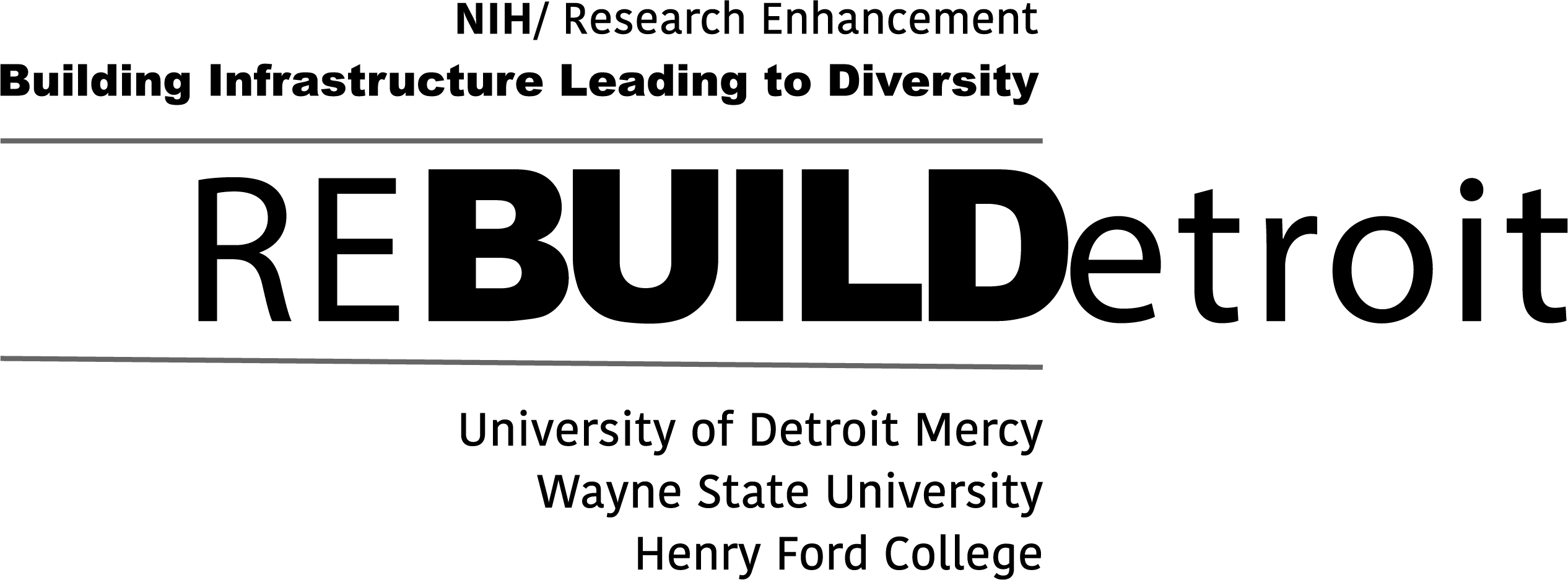A year ago, Victoria Torres and John Sherwood could not have imaged that they would present research findings from their freshman-level course at an international symposium.
Torres and Sherwood took part in a new laboratory class, SEA-Phage, at Detroit Mercy which was sponsored by the Howard Hughes Medical Institute (HHMI) Science Education Alliance.
The two-semester course sequence saw students analyze soil samples for bacteriophage (viruses that infect bacteria) in the first semester followed by annotating genomes with bioinformatics tools in the Winter semester.
The course-based research project is part of an international consortium supported by HHMI and used to isolate and characterize new bacteriophage.
Torres and Sherwood were selected by lottery to present their research at the 8th Annual SEA-PHAGE Symposium at the Janelia Research Campus in Ashburn, Virginia. There were over one hundred undergraduate researchers presenting their findings at the Symposium.
“It was slightly unnerving to present our research with more experienced researchers,” said Sherwood. “The experience showed me that research isn’t conducted only by experienced professors at large universities. Undergraduates at smaller schools make real contributions to the scientific community.”
“Opportunities for students to present and network with scientists from around the country is not a typical experience for undergraduates, especially freshman,” says Dr. Jacob Kagey, associate professor of Biology. “This course, along with other programs in ReBUILDetroit, provides an authentic research experience during the freshman year to spark and engage interest in scientific discovery and research. These students will have an impressive resume of research experience, presentations, and perhaps even publications by the time they graduate. Getting a chance to present at a meeting like this helps to reinforce to our students that they are part of a larger research project and that they have made substantial contributions to the overall understanding of bacteriophage.”
Symposium attendees included students, faculty and personnel from HHMI.
“We got a chance to explain our findings to David Asai, director of the undergraduate science education program at HHMI,” said Torres. “We were given tips and ideas to further our research.
“The experience helped me understand why symposiums are important to the research community,” said Torres. “It quickly spreads knowledge and allows researchers to formulate new ideas and questions.”
“I plan to continue with researching throughout my schooling and career,” said Torres.
Learn more about:
Ready for #seasymp2016 @UDMces @reBUILD313 @sbconant pic.twitter.com/DqG8m2gmMY
— Jacob Kagey (@6MileFlyGuy) June 10, 2016
John and Victoria present to Dr David Asai (HHMI) and Dr Chris Shaffer (WashU). #SEAsymp2016 @reBUILD313 @sbconant pic.twitter.com/kb37Q53iCh
— Jacob Kagey (@6MileFlyGuy) June 11, 2016
